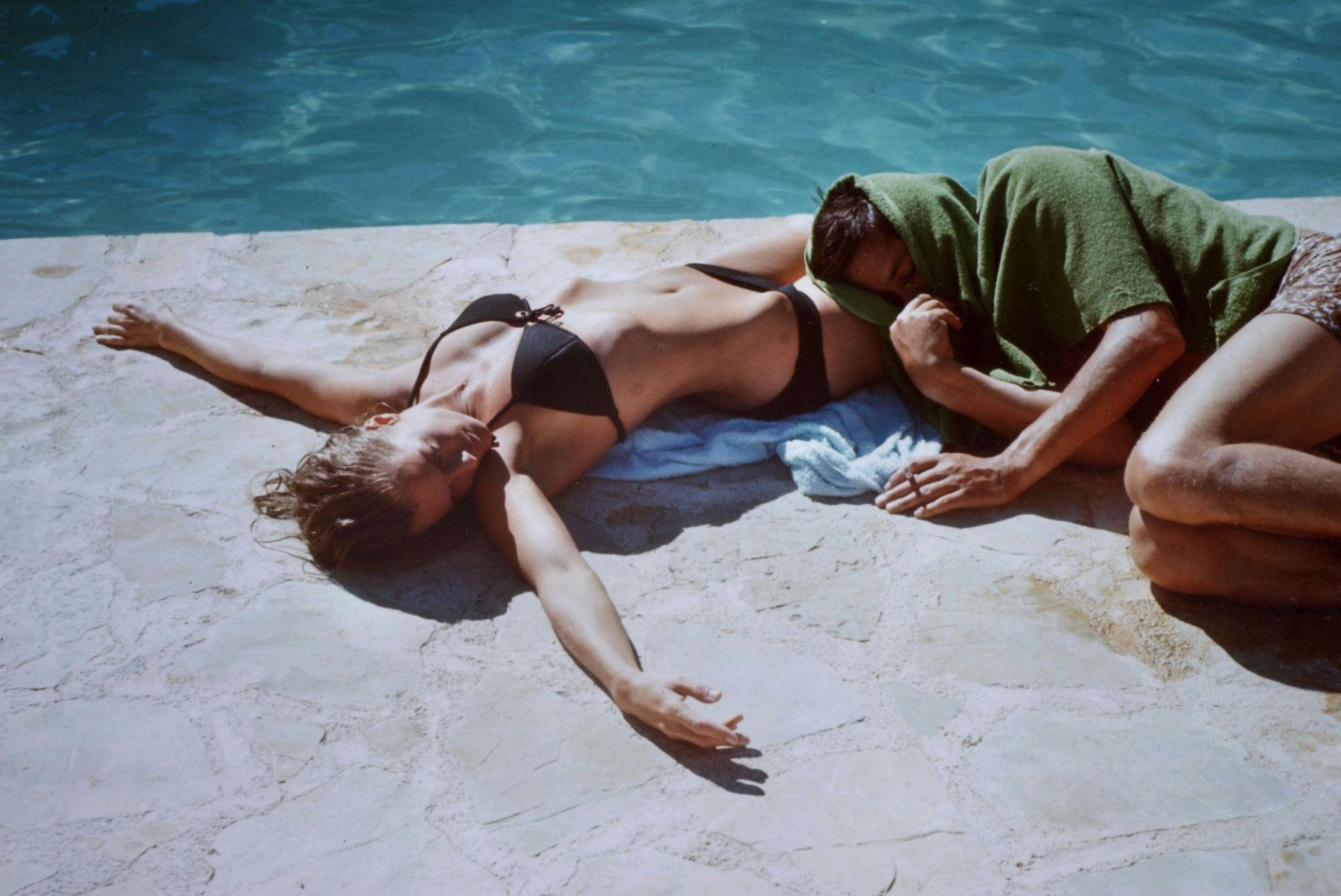
"Memory’s truth, because memory has its own special kind. It selects, eliminates, alters, exaggerates, minimises, glorifies, and vilifies also; but in the end it creates its own reality ...” – Salman Rushdie
Riding out the last of the winter months with the slow loping stride of an overtired cross-country skier. Getting it done – one deadline, one drawn-out meeting, one school drop-off at a time. An endless loop of exaggerated Mondays. Drumming up makeshift escape chutes for the mind to flee the short days, long nights, grey skies and sub-temps. Netflix, red wine, half-decent books. All good things, none quite hitting the spot. And then one morning the air shifts, changes density, moves differently over the skin, and there we are in the throes of nostalgia, fossicking through our mental back catalogue to find it, the glinting fossil of that summer we’ve all had at least one of. The kind we remember so vividly all it takes is a soft trigger – a song, a smell, a taste – and we’re plunged into a sea of sensory memory.
The thick salty mist that hangs about in the evenings, scorched skin and haywire hair. Days bleeding into nights, losing time, losing senses. Diving off rocks into a vast black ocean because nothing bad could ever happen on a night like this. Ending up in all the right places, finding sand in all the wrong ones. Forgetting to eat, forgetting to sleep, forgetting the keys, forgetting yourself. And that guy, of course, that girl. The one who caught our eye too quickly and we fell, hard in love, before the sun was down and we’d even asked their name …
Summertime clichés aren’t summertime clichés for nothing and we’ve all lived our own precious few that quietly affirm for us the existence of paradise, however brief, however long ago. Because these are the times that imprint with such enduring clarity in our minds and hearts it’s as if they live within our cells as necessarily as water. No matter the junk that might be cluttering our heads on any given day, they can be plucked from our inner vault in an instant. And the beauty of it is, those moments – the ones when we felt our most heedless and alive, our most awake within our senses – only grow more perfect, more softly lit and rosy-filtered, with the shading and tinting our mind lovingly applies over time.
The precise mechanics of emotional memory are a complex and fascinating operation, but for the sake of word economy (and because I am no neuroscientist) I’ll oversimplify the whole thing as such: when all of our senses are active and engaged in a significant moment, prompting a heightened emotional response, our brain takes it as a flashing neon sign: look how alert we are, how switched on, we must need this information, we must preserve it at all costs! It selects and records with HD clarity what it thinks is important to us and does not ask questions. And so, whether we like it or not, our psyches cling with a lover’s devotion to these technicolour multi-sensory memories, happily unpacking them in vivid detail any time we’re prompted to rifle through the archives.
The efficiency with which the mind does this is tragically apparent in cases of acute trauma. A person who suffers with post-traumatic stress disorder (PTSD) for example, will unwillingly re-experience disturbing memories at the slightest suggestion of the original event, and sometimes the waves of emotion brought on by the memory are just as intense and just as debilitating as if it were happening all over again. We have some understanding of why this occurs – the result of an over-active survival mechanism designed to record perceived danger for future avoidance. Any psychologist will tell you how effective, and potentially inhibiting, this system can be. To some extent this happens to all of us when we experience unexpected recall of painful memories and there is a perfectly good evolutionary reason.
But why do we need the good stuff? Those hyperreal, almost tangible memories of heady summers, long-lost lovers, and exhilarating adventures show us that joy and rapture are stored in the mind and body in a similar way to trauma – but for what real purpose? If we’re biologically wired to create and store easily locatable programs for our survival, why are truly pleasurable memories as real to us as painful ones? I hardly think we need to remember how to drink too many margaritas and swim naked at dusk as part of a sophisticated program designed to keep us from dying before our time. So is the intensity with which we feel these memories just a happy by-product of a system designed to remind us of danger – a pleasant but largely useless side effect? Or is there more to it? It would be nice to think that nature somehow wants us to get the most out of our brief time on earth, and that knowing where and how to find joy is as necessary to our human experience as avoiding peril. Could there be an underestimated benefit to creating, collecting and recalling intensely pleasurable memories that goes beyond their simply being nice to have?
Those hyperreal, almost tangible memories of heady summers, long-lost lovers, and exhilarating adventures show us that joy and rapture are stored in the mind and body ...
One hypothesis is that just like a traumatic experience an uncommonly joyful one is embedded in the mind with its own chemical signature. With the release of a painful or fearful memory comes a surge of adrenaline and cortisol, our innate stress response that can in some cases be experienced in the recalling of an event with equal potency as the original moment. In other words, in that first instance of remembering the body doesn’t know the difference between the past and present and immediately kickstarts our fight-or-flight response. But in the case of happy memories a different chemical cocktail is activated. Here we have oxytocin and dopamine, the hormones of bonding and pleasure. When we remember sunning ourselves on a beach in Tahiti, our body is flooded with the signals of love and relaxation, switching on our parasympathetic nervous system responsible for healing and repair. When Rushdie wrote that memory “creates its own reality” might he have been aware that the reality it creates is in fact a measurable physiological process? Could it be that by reliving positive experiences we’re essentially reinforcing the associated chemistry linked to those experiences, thus influencing our state of wellbeing in the present via reflections on the past?
As “research” for this piece I decided to sit down with a coffee, close my eyes and throw my mind back to one of those paradisal summers of love. I’d thought of it often before, but never with the conscious intention of fully immersing myself in the emotional experience of it and measuring the effect on my present state of mind. I’d been having a fairly stressful day so I figured it would be a good litmus test. The images, sounds and feelings bled back slowly at first, dripping into my mind non-sequentially – a patchy montage of scenes and events. But pretty soon I was there, snaking through the cobbled hairline streets of Santorini on the back of a motorbike at deadly speed with no helmet on. I didn’t care, I was already in love with the driver and the sun was setting over the sea with the kind of unearthly beauty that meant we would live forever, obviously. From there the scenes kept rolling, deepening in tone, texture and sound quality the more I focused my attention. I felt the remnants of those feelings churn up in my chest a little, like the gentle slosh of a bumped glass of water – small ripples of the lightness and abandon that characterised those days. But I have to admit that in it all the overriding emotion was sadness, maybe a little disappointment, and longing. Longing for a time, a way of being, that felt lost to the past, gone with the blissful ignorance and impetuousness of youth. Pretty soon I was back in my day, worrying about bills, how to disguise vegetables in my toddler’s dinner, meeting deadline, and those warm licks of remembering fell back into the deep well of the distant past.
This little exercise demonstrated for me two things: firstly, the mind romanticises the past to a near comical degree (well, mine certainly does anyway) and secondly, while recalling pleasurable memories may to some extent have a positive influence on our biochemistry in the present, their emotional charge eventually wears thin leaving us yearning for a time – or perhaps it’s more accurate to say a version of ourselves – that no longer exists. In this way, unfortunately, it seems that happy memories, while they may grow more beautiful with age, aren’t quite as robust as traumatic ones. The more we unwrap that euphoric summer of 2008 the more the memory itself is altered and the dimmer the feeling grows with each revisiting. In The Road Cormac McCarthy wrote, “each memory recalled must do some violence to its origins. As in a party game. Say the word and pass it on. So be sparing. What you alter in the remembering has yet a reality, known or not.” It’s true that the mind obscures even the most vivid memories over time and that, like Rushdie also noted, they form a reality unto themselves via an ongoing process of reconstruction. But be sparing? If we plan on making a mere handful of these dopamine-spiking, oxytocin-inducing memories over the course of a lifetime then sure, let’s all be mindful of measuring our hits so as not to drain the supply of their potency too soon.
But thinking back on that mythic summer in Santorini all those years ago, and the similar few I’ve experienced since, made me certain of one thing: I’m not ready to let that be it. I’m not ready to resign myself to the prosaic sameness of routined life as a responsible mother, professional, wife, grown-up. I believe with every life-lusty breath in me that heady summers and all-out adventures shouldn’t be filed away under the trifling indulgences of youth when our priorities shift to child rearing and bill paying. Falling in love shouldn’t be something we do a few times over until we finally land on someone to slowly recede into the banality of everyday coupledom with. I would like, frankly, to be refreshing my mental archives with an abundance of ecstatic memories as long as fate permits me enjoyment of all earthly pleasures. I don’t want to think back on something that happened ten years ago for my mid-winter dopamine hit, I want to think back on this summer, the one about to happen, and be glad at the spontaneity and presence of mind with which I experienced each day. I want to remember falling in love, not with some sweet-talking Italian bartender, but with my husband, with my friends, and with life, all over again. Because on those wretched sodden days sitting in endless traffic with a broken heater, I need those memories to be right there and crystal clear, flashing across my mind in surround sound, filling my cells with that glorious chemistry. Maybe the biological system designed to remind us how to avoid death is also designed to remind us how to really live, and how we want to feel while we’re alive. So we’ll keep making memories, keep giving the mind something to romanticise and the heart something to fill up on. “I don’t want to repeat my innocence,” wrote F. Scott Fitzgerald in This Side of Paradise, “I want the pleasure of losing it again.”



